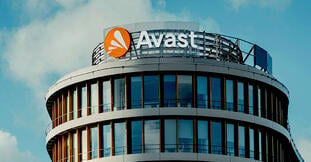Public Wi-Fi Experiment Conducted Across
the Globe Reveals Major Security Flaws in Wi-Fi Hotspots – Asian Users More at
Risk than Europeans and Americans
Mobile World Congress, Barcelona,
Spain, March 2, 2015 – Avast Software, maker of the most trusted mobile and PC security in the world, today
unveiled the results of a global Wi-Fi hacking experiment that exposed major
security issues regarding the browsing habits of users around the globe. Avast
mobile security experts traveled to cities in the United States, Europe, and
Asia to observe public Wi-Fi activity in nine major metropolitan areas. They
were equipped with a Wi-Fi-enabled laptop and an application that monitored
local Wi-Fi traffic at 2.4 GHz frequency – a free app that is widely available.
The experiment showed how easy it is to see browsing activity, searches,
passwords, videos, emails, and other personal information.
The study revealed that
users in Asia are the most prone to attacks. More than half of the Web traffic
in Asia takes place on unprotected HTTP sites, 97% of users connect to open,
unprotected Wi-Fi networks, and seven out of ten password-protected routers use
weak encryption methods, making it simple for them to be hacked. Users in San
Francisco and Barcelona are the most likely to take steps to protect their Wi-Fi
sessions, although the number is still very small as only 20% take precautions.
“This
experiment revealed that most mobile users aren’t taking adequate steps to
protect their personal data and privacy from cybercriminals”, said Jude McColgan, president of Mobile at Avast. “People wear a seat belt in
the car to be safe, and they should use a security app when using public
Wi-Fi.”
Beware of Unprotected
Wi-Fi Networks
The study found that
people around the world overwhelmingly prefer to connect to unsecured and
unprotected Wi-Fi networks instead of password-protected networks. Mobile users
in Asia were most likely to join open networks, while Europeans and Americans were
slightly less so; In Seoul, 99 out of 100 users joined unsecured networks,
compared with just 80 out of 100 in Barcelona and San Francisco.
- Seoul: 99 out of 100
- Hong Kong: 98 out of 100
- Taipei: 97 out of 100
- Chicago: 96 out of 100
- New York: 91 out of 100
- Berlin: 88 out of 100
- London: 83 out of 100
- Barcelona: 80 out of 100
- San Francisco: 80 out of 100
Dangers of HTTP
Browsing
Avast discovered that a
significant portion of mobile users browse primarily on unsecured HTTP sites. Nearly
half of the Web traffic in Asia takes place on unprotected HTTP sites, compared
with one third U.S. traffic and roughly one quarter of European traffic.
Because HTTP traffic is
unprotected, the Avast team was able to view all of the users’ browsing
activity, including domain and page history, searches, personal login
information, videos, emails, and comments. Websites like eBay, Amazon,
Wikipedia, Craigslist, and Bing don’t use the HTTPS standard unless the user
logs in. In every city, Avast was able to see examples of users looking at medical
sites, insurance pages, banking, and adult videos—all on unsecured public Wi-Fi
networks.
Weak Encryption
The majority of Wi-Fi hotspots Avast
observed were protected through some form of encryption. However, often these
methods were weak and could be easily hacked. Using
WEP encryption in particular can be nearly as risky as forgoing
password-protection altogether, as users tend to feel safer entering their
personal information, but their data can still be accessed.
San Francisco and
Berlin had the lowest percentage of weakly encrypted hotspots, while more than
half of password-protected hotspots in London and New York and nearly three
quarter of the Asian hotspots were vulnerable to attack.
- Seoul: 70,1%
- Taipei: 70,0%
- Hong Kong: 68,5%
- London: 54,5%
- New York: 54,4%
- Chicago: 45,9%
- Barcelona: 39,5%
- Berlin: 35,1%
- San Francisco: 30,1%
Avast will be demonstrating a live Wi-Fi hack at their Mobile World Congress
booth, and visitors can connect to the Avast Wi-Fi hotspot to experience a
hack in action. Avast will also demonstrate its new Avast SecureMe app, which
protects people from Wi-Fi threats. For
more information on the Wi-Fi experiment, please visit Avast at booth 5K29,
hall 5 at Mobile World Congress.
Note to Media: Avast
mobile president, Jude McColgan, and Avast head of worldwide mobile sales and
marketing, Daniel Cheng, will be available to discuss mobile threats, Avast’s
mobile business, and new mobile applications. If you are interested in speaking
to an Avast expert at Mobile World Congress, please contact PR@avast.com.








